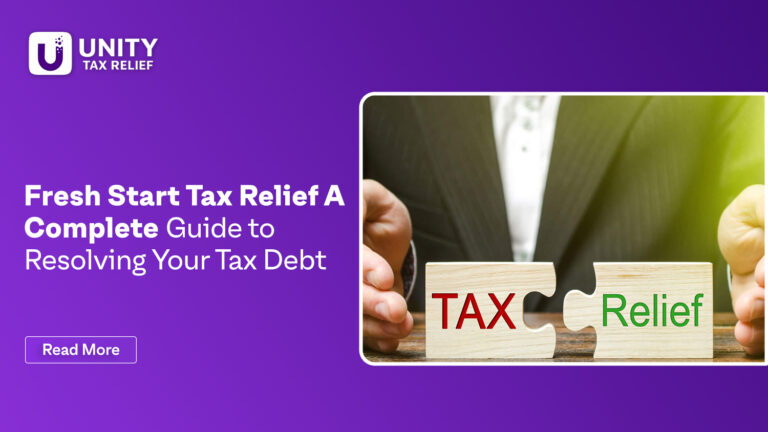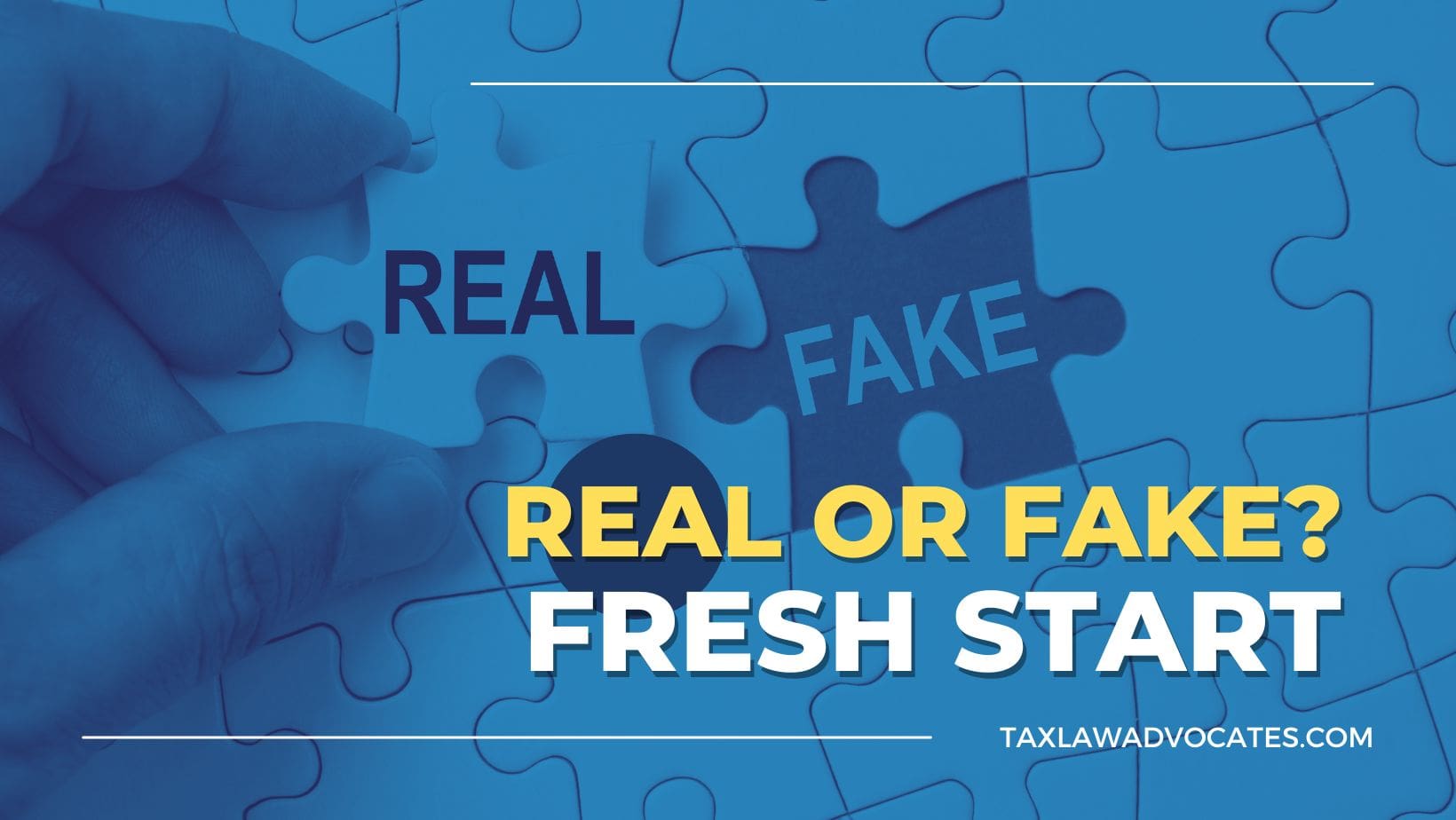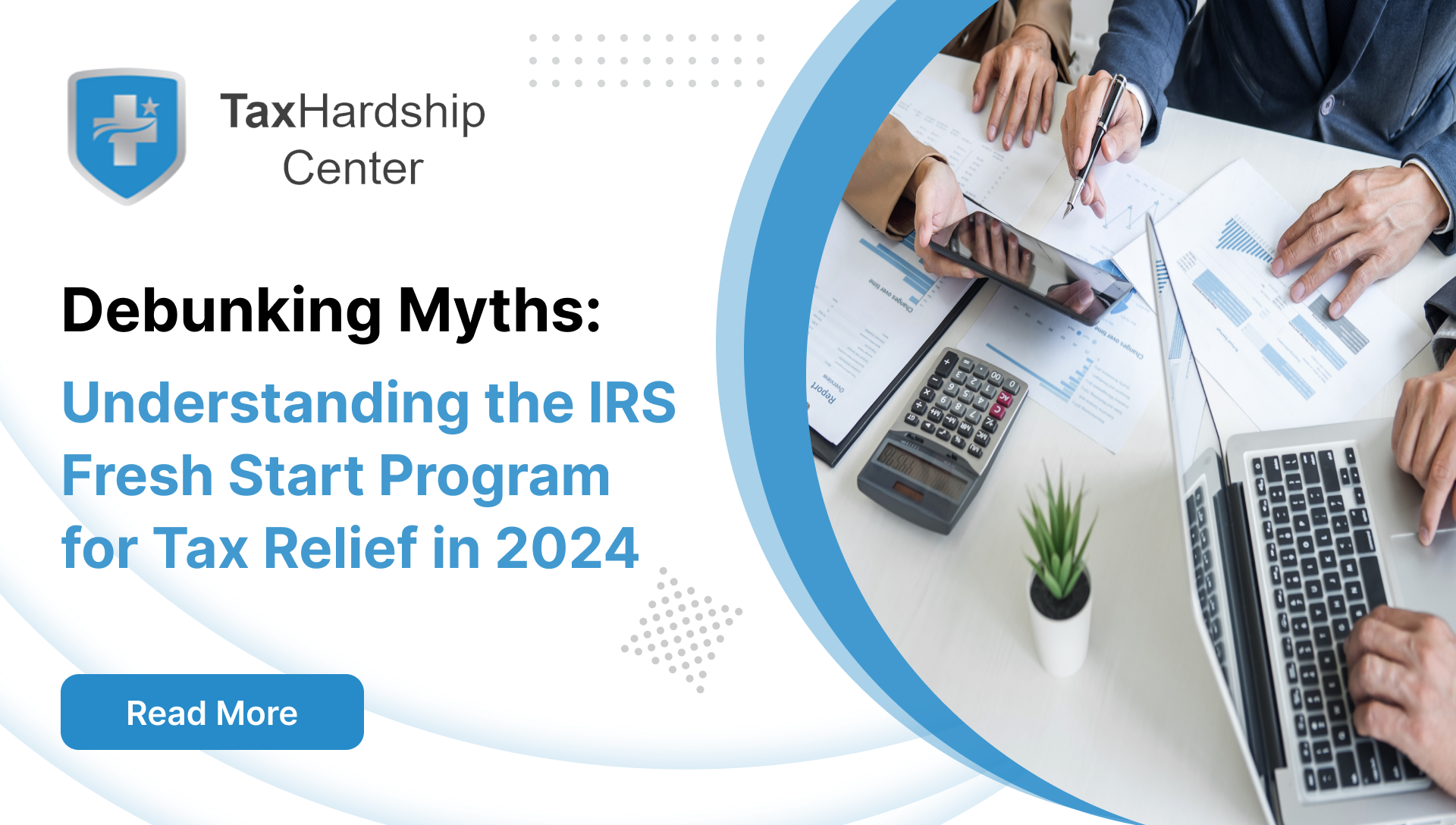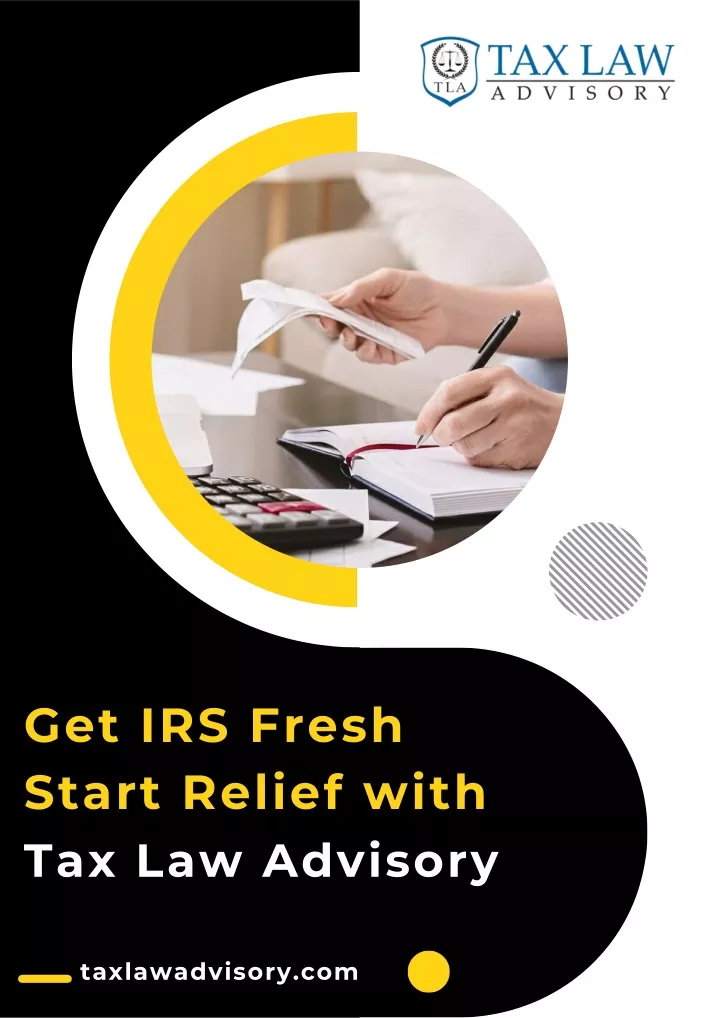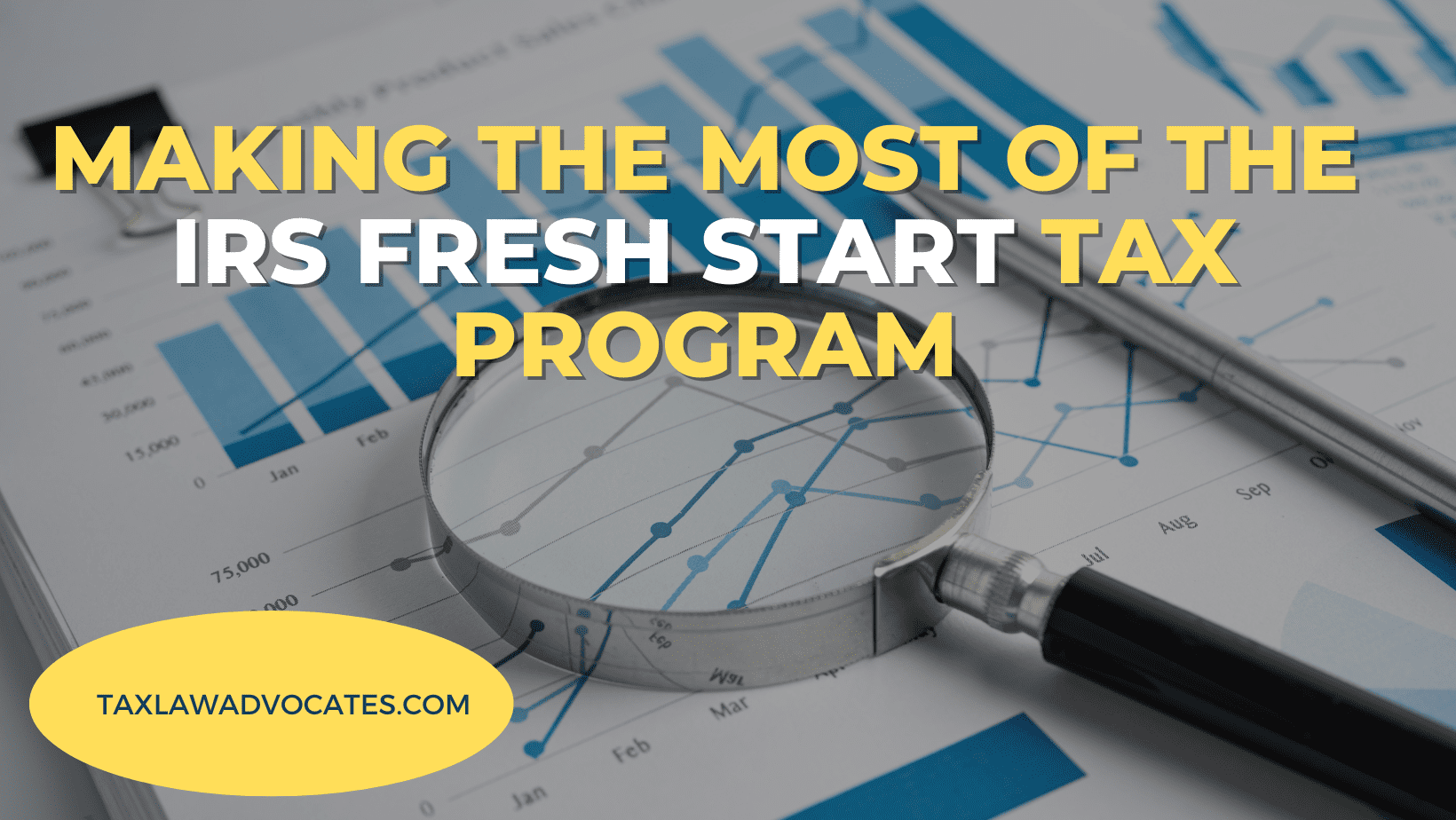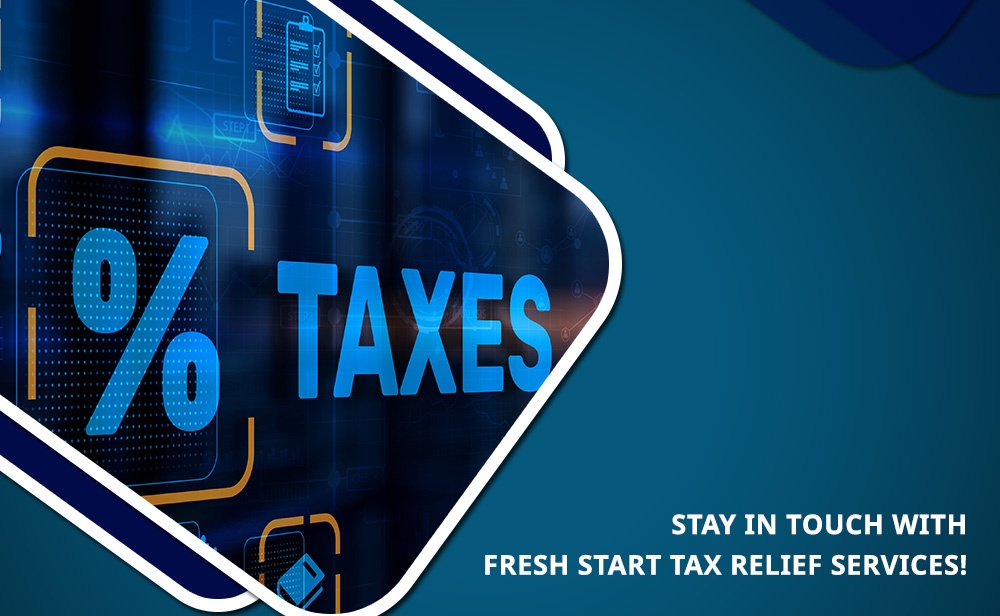Is Fresh Start Tax Relief Legit
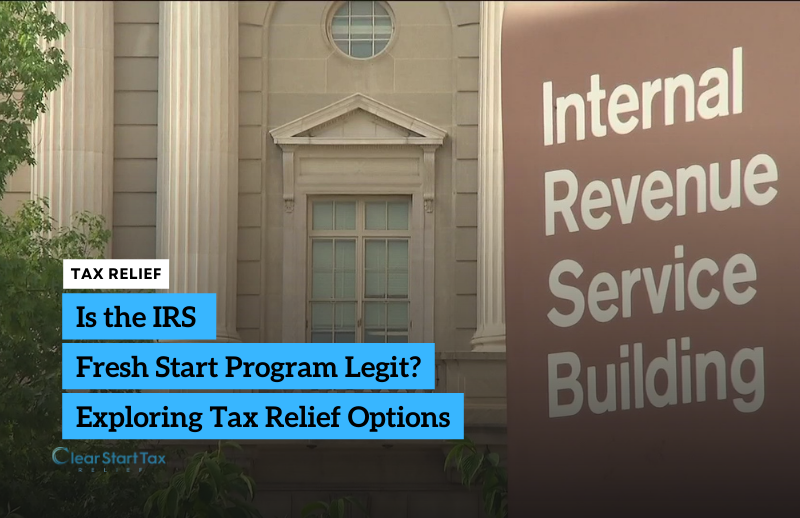
Taxpayers are bombarded with ads promising "Fresh Start" tax relief, leading many to wonder if these programs are legitimate. Scrutiny is urgently needed to differentiate genuine IRS initiatives from potentially predatory schemes preying on vulnerable individuals.
This article cuts through the noise to deliver a clear assessment of Fresh Start programs, separating fact from fiction and equipping you with the knowledge to protect yourself from scams.
Understanding the IRS Fresh Start Initiative
The Fresh Start Initiative, launched by the IRS in 2011, aimed to ease tax burdens for struggling taxpayers. It was designed to help taxpayers who owed back taxes and faced difficulty paying their debt.
This initiative implemented several changes to IRS policies, including offering more flexible payment options. It also raised the thresholds for placing liens and levies on taxpayers' property.
Who benefits? Primarily, it targets taxpayers with small businesses or individual returns experiencing financial hardship.
Key Programs Under the Fresh Start Umbrella
Several programs fall under the Fresh Start umbrella, each offering a specific type of relief.
Offer in Compromise (OIC)
The Offer in Compromise allows certain taxpayers to settle their tax debt for a lower amount than what they originally owed.
The IRS assesses a taxpayer's ability to pay, income, expenses, and asset equity. An OIC is granted when these factors demonstrate an inability to fully pay the debt.
Strict criteria apply, involving detailed financial disclosures and meeting specific IRS requirements. It's not a guaranteed solution.
Installment Agreements
Installment agreements permit taxpayers to pay their tax debt in monthly installments over an extended period.
The IRS offers different types of agreements, including streamlined options for smaller debt amounts. It may involve direct debit payments.
Penalties and interest continue to accrue until the debt is fully paid. Failure to comply with the terms leads to default.
Penalty Abatement
Taxpayers can request penalty abatement if they can demonstrate reasonable cause for failing to file or pay on time.
Acceptable reasons often include serious illness, death in the family, or natural disasters. Documented evidence is essential for approval.
The IRS reviews each case individually, considering the specific circumstances and the taxpayer's history.
Red Flags: Identifying Potential Scams
Be wary of companies aggressively advertising "guaranteed" Fresh Start tax relief. This tactic is a common sign of a scam.
These companies often charge exorbitant fees upfront, without delivering promised results. They may make unrealistic promises that the IRS would never approve.
What are the warning signs? Demands for large advance payments, guarantees of debt elimination, and pressure tactics should raise immediate concern.
Protecting Yourself from Tax Relief Scams
Always verify the credentials of any tax professional you consider hiring. Check their qualifications and licensing through relevant professional organizations.
Never share sensitive personal or financial information with unsolicited callers or emails. The IRS typically communicates via mail.
Where can you get reliable information? The IRS website (IRS.gov) provides accurate and comprehensive details about Fresh Start programs and other tax relief options.
The Role of Tax Professionals
A qualified tax professional, such as a CPA or enrolled agent, can assess your situation and determine if you're eligible for Fresh Start relief.
They can guide you through the application process and represent you before the IRS. Ensure they have a proven track record of success.
How can they help? They can help you navigate the complex tax code, identify potential savings, and negotiate with the IRS on your behalf.
Recent Developments and Enforcement Actions
The IRS actively investigates and prosecutes individuals and companies engaging in tax relief scams. They issued many warnings to taxpayers.
Increased enforcement actions target fraudulent schemes that exploit vulnerable taxpayers. Stay informed about these efforts.
When are these scams most prevalent? Tax season and times of economic uncertainty tend to see a surge in fraudulent activities.
Next Steps: What to Do If You Need Tax Relief
If you owe back taxes and need relief, contact the IRS directly or consult with a reputable tax professional. Avoid falling prey to misleading promises.
Thoroughly research any tax relief company before engaging their services. Check their reviews and verify their credentials.
Stay vigilant and report any suspected tax scams to the IRS or the Federal Trade Commission (FTC). Your actions can protect others.
